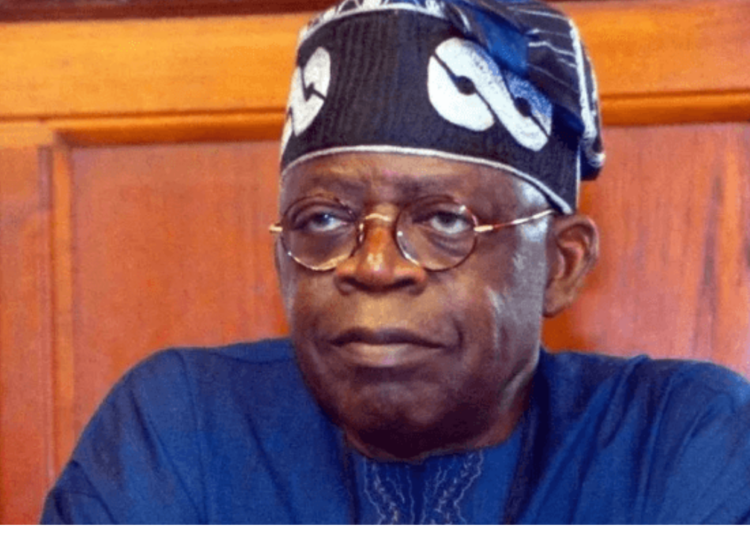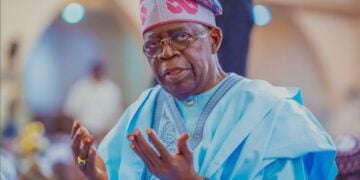These are challenging times for the people of Nigeria, primarily due to the removal of fuel subsidy and the unification of the exchange rate. These decisions have had significant repercussions across the country, as the prices of goods and services, closely tied to the cost of fuel, have surged significantly.
President Bola Tinubu has consistently urged Nigerians to exercise patience, offering assurances that there is hope for a brighter future ahead.
In a nation where the cost of living is heavily influenced by the price of fuel, the elimination of fuel subsidy and exchange rate unification have profoundly impacted everyday expenses. The surge in prices has placed a heavy burden on the average citizen, making it challenging to cope with the rising cost of essentials.
However, recent actions by the political class indicate a reluctance to make personal sacrifices for the greater welfare of the general population.
In the considered opinion of this Newspaper, sacrifices should not be borne by the poor alone in order for the country to realize its potential.
However, the stark irony lies in the fact that despite such appeals by the president for Nigerians to sacrifice, an alarming N70 billion was approved for National Assembly members in the 2022 Supplementary Appropriation Bill to improve the working conditions of its new members.
This raises serious concerns about the need for both the executive and the legislature to lead by example in cutting down on excessive expenditure and reducing the number of aides.
Additionally, the appointment of several aides by the president who are duplicating duties is highly insensitive to the prevailing mood of the nation. As of the last count, the president has at least 5 media aides, adding an unnecessary financial burden on the already strained resources. Furthermore, we frown upon the appointment of 47 ministers during this period of sacrifice.
The time has come for the political office holders to empathize with the plight of the common man and lead a much-needed transformation in the cost of governance.
We also recall that in 2012, the Presidential Committee on Restructuring and Rationalisation of Federal Government Parastatals, Commissions, and Agencies, chaired by Steve Oronsaye, delivered an exhaustive 800-page report aimed at reducing government expenditure and enhancing efficiency in Nigeria’s bureaucracy.
The committee’s recommendations were both pertinent and forward-thinking, proposing the abolition and merger of 102 government agencies and parastatals, along with encouraging self-funding for some.
Additionally, the discontinuation of government funding for professional bodies and councils was suggested to allocate funds for crucial national development projects.
Regrettably, successive governments have lacked the will to implement this transformative report, allowing unnecessary wastage to persist in government expenditure.
The Oronsaye committee’s findings shed light on the disconcerting phenomenon of overlapping agencies, resulting in fierce competition and friction among government entities. This redundancy not only strained resources but also bred inefficiency, hindering the delivery of essential public services.
By recommending mergers and abolitions, the committee sought to streamline the government’s operations and redirect funds towards priority areas.
However, despite the glaring need for action, the report’s vision has largely been relegated to a mere dusty document on official shelves.
We also recall that the administration of former President Muhammadu Buhari received the draft white paper on the review of new parastatals, agencies, and commissions.
For genuine progress to be achieved, it is imperative that the administration of President Tinubu exhibits the courage and determination to implement the Oronsaye committee’s proposals.
By eliminating redundant agencies and redirecting funds towards critical projects, the government can improve service delivery and foster economic growth.
Moreover, discontinuing funding for certain professional bodies would not only alleviate financial strain but also uphold the principles of equity and transparency in resource allocation.
The Oronsaye committee’s report offers a comprehensive roadmap to address these issues and steer the nation towards a more prosperous future. It is disheartening to witness such a valuable resource languishing in inaction, while the nation grapples with fiscal constraints and developmental deficits.
Cutting the cost of governance in Nigeria requires a comprehensive approach that entails accountability, transparency, and sensitivity. This begins with the willingness of political leaders to take a pay cut and relinquish excessive perks. Such a symbolic act would signal the commitment of the government to endure the same hardships as their constituents.
Furthermore, a thorough audit of government expenditure is necessary to identify areas of waste and redundancy, leading to a more efficient allocation of resources.
Consequently, the call for cutting the cost of governance in Nigeria is an urgent and necessary step towards achieving a more equitable and prosperous nation.
President Tinubu’s appeal for sacrifice is commendable, but it must be followed by concrete actions from both the executive and the legislature. Reducing excessive expenditure, streamlining the number of aides, and prioritizing the welfare of the citizens over personal interests will demonstrate true leadership and sensitivity to the needs of the nation. Only through collective effort and accountability can Nigeria overcome its challenges and build a brighter future for all its citizens.











